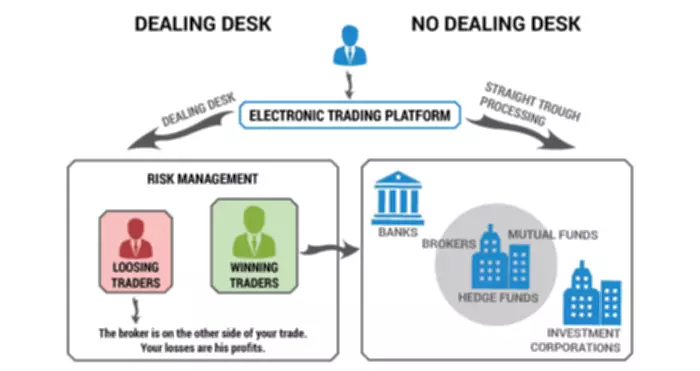Derivatives assist buyers handle their risk levels by allowing them to hedge in opposition to potential losses. By utilizing derivatives, buyers can cut back their publicity to certain dangers, corresponding to foreign money or interest rate fluctuations. Swaps are used for a wide selection of causes, including hedging in opposition to risk, speculation, and transferring risk between two parties.
Likewise, derivatives can be used in complex methods such as spread trading that can yield higher returns while limiting threat in contrast with simpler methods like holding and shopping for shares. The trendy derivatives market began when the Chicago Board of Trade was based What is Exchange Traded Derivatives in 1848. Farmers used it to hedge towards crop costs, and the exchange enabled them to enter into agreements for future delivery at a predetermined price. People first used derivatives to protect themselves from the uncertainty of crop costs, climate, struggle, and other risks.
Financial instruments including futures, choices, and swaps which might be exchanged on an trade are referred to as exchange-traded derivatives. These derivatives are based mostly on an underlying asset or index and are traded on the open market. Futures derivatives involve the identical fundamental ideas as different derivatives, corresponding to choices and swaps. The buyer of a futures derivative pays an upfront premium to the seller in trade for the best to purchase or promote the underlying asset at a predetermined future date. The seller of the futures by-product agrees to deliver the underlying asset on the predetermined future date in change for the premium. It helps in hedging risk towards unfavorable worth actions of an underlying asset.
Meaning Of Derivatives
For example, an investor could use choices contracts to realize exposure to a stock worth with out placing up the total quantity of capital required by conventional investments. A swap is an OTC contract between two parties exchanging one asset for one more with no money involved. Swaps are sometimes used to mitigate publicity to interest rate fluctuations and change risks. Exotic derivatives, then again, are more complex derivatives that often contain a number of underlying assets or indexes. These derivatives, which can be personalized to meet particular needs, are usually more expensive than vanilla derivatives, however they’ll also provide larger returns.

Speculators embody particular person traders, hedge funds, and different traders who search to generate income from buying and selling ETDs. Speculators are often characterized as including liquidity to the market and selling worth discovery. Speculators are market members who use ETDs to revenue from value movements within the underlying asset. Swaps contracts are customized agreements that are negotiated between the parties and are used by traders and companies to manage interest rate risk, currency threat, and credit score danger. The value of derivatives usually is derived from the efficiency of an asset, index, rate of interest, commodity, or forex. For example, an fairness option, which is a by-product, derives its worth from the underlying stock value.
What Are The Principle Advantages And Dangers Of Derivatives?
It’s necessary to remember that when firms hedge, they don’t appear to be speculating on the price of the commodity. Each get together has its revenue or margin built into the price, and the hedge helps to guard those earnings from being eliminated by market moves in the value of the commodity. Unlike their over-the-counter cousins, exchange-traded derivatives could be well suited to some retail investors. In the OTC market, it is straightforward to get lost within the complexity of the instrument and the exact nature of what is being traded.
In contrast, over-the-counter derivatives are traded privately and are tailor-made to satisfy the wants of each party, making them much less clear and much more troublesome to unwind. Exotics, on the other hand, tend to have more advanced payout structures and will combine several options or may be primarily based upon the performance of two or more underlying property. Because the spinoff has no intrinsic worth (its value comes solely from the underlying asset), it’s vulnerable to market sentiment and market danger. It is feasible for provide and demand elements to cause a by-product’s price and its liquidity to rise and fall, regardless of what’s occurring with the value of the underlying asset. In phrases of timing your right to purchase or sell, it depends on the “type” of the option. An American choice permits holders to exercise the option rights at any time before and including the day of expiration.

This acts as a risk management device and a protection towards worth fluctuations. Cost of buying and selling in derivatives is lower as compared to different securities like shares or debentures. The value of buying and https://www.xcritical.com/ selling in spinoff devices is kind of low as in comparability with other segments in monetary markets. They act as a risk administration device and thereby lower the transaction prices of the market.
Derivatives: Definition, Sorts, And Advantages!
Additionally, they can be utilized to access a sure object without really proudly owning it. Swaps are thought of more complex than other derivatives, corresponding to choices and futures, however can provide greater flexibility and higher pricing. A complex financial safety that has been agreed upon by two or more parties is known as a by-product.
- Lower transaction costs are made attainable by derivatives as a end result of they effectively act as a danger administration software.
- The trade has standardized terms and specifications for each by-product contract.
- We might earn a commission when you click on a hyperlink or make a purchase by way of the hyperlinks on our website.
- Deskera CRM is a strong answer that manages your gross sales and assists you in closing agreements rapidly.
Currency choices are options by which the holder can purchase or promote foreign money in the future. Currency choices are used by individuals and main businesses to hedge against overseas exchange danger. As an instance, a speculator can purchase an possibility on the S&P 500 that replicates the performance of the index without having to give you the cash to purchase every stock in the entire basket. Futures contracts are standardized contracts that permit the holder of the contract to buy or promote the respective underlying asset at an agreed worth on a specific date. The events concerned in a futures contract not solely possess the best but additionally are under the duty to carry out the contract as agreed.
The events involved are obligated to satisfy a dedication to buy or sell the underlying asset. Future are the standardized sort of contracts enter into by parties for buying and selling of underlying securities at an agreed value at some future date. These are traded over an exchange through intermediary and are completely regulated. Future contracts can’t be personalized as per the celebration wants and carry decrease counterparty danger.

Examples of derivatives are futures, choices, swaps, and contracts for distinction (CFDs). Hedgers use change traded derivatives to manage their financial dangers by offsetting their publicity to cost movements within the underlying asset. Options contracts are traded on organized exchanges and are utilized by buyers and firms to manage worth threat, speculate on future price modifications, and generate earnings from premiums. Futures contracts are traded on organized exchanges and are utilized by buyers and firms to manage price danger and achieve publicity to commodities, currencies, and other belongings. Derivatives are monetary devices used for buying and selling in the market whose value is dependent upon one or more underlying belongings. It is a safety that derived its worth from underlying assets corresponding to stocks, currencies, commodities, valuable metals, stock indices, etc.
The key difference lies within the negotiated specifications between parties, such as the absence of a specified contract measurement. Each futures contract has buying and selling hours relying on the commodity or financial instrument. Instead, traders are probably to exit their place by selling the option contract to another investor. In instances where the investor originally went quick, they repurchase the choice contract offered.

Arbitrageurs are typically subtle buyers who use laptop algorithms and different superior trading methods to determine and exploit pricing inefficiencies out there. Assume Bank A owns a $10 million funding that pays the London Interbank Offered Rate (LIBOR) plus 1% every month. Now assume Bank B owns a $10 million investment that pays a hard and fast fee of 2.5% each month. Get prompt access to lessons taught by experienced private equity execs and bulge bracket investment bankers including financial statement modeling, DCF, M&A, LBO, Comps and Excel Modeling. While many derivatives are leveraged, it’s essential to note that not all derivatives function with increased leverage.
Assume the stock falls in worth to $40 per share by expiration and the put possibility buyer decides to train their possibility and promote the stock for the original strike value of $50 per share. If the put choice cost the investor $200 to purchase, then they’ve solely lost the value of the choice as a end result of the strike worth was equal to the price of the stock after they initially bought the put. A strategy like this is referred to as a protective put as a end result of it hedges the stock’s draw back risk. The trade itself acts as the counterparty for every exchange-traded spinoff transaction.

Futures contracts that are cash-settled include many interest rate futures, inventory index futures, and more uncommon devices similar to volatility futures or climate futures. Advantages embrace hedging towards risk, market effectivity, determining asset costs, and leverage. However, derivatives have drawbacks, corresponding to counterparty default, difficult valuation, complexity, and vulnerability to produce and demand. The most common method to spend money on derivatives is thru an investment broker or a monetary establishment. It involves opening an account with the firm and making trades via a dealer.
Soon the Chicago Mercantile Exchange opened, specializing in futures and options. Other exchanges followed, including the New York Mercantile Exchange, the ICE Futures Europe, and the Singapore International Monetary Exchange. Because it affects a specific commerce, interconnection danger relates to the relationship between numerous derivative contracts and dealers. In the United States, ETDs are regulated by the Securities and Exchange Commission (SEC).